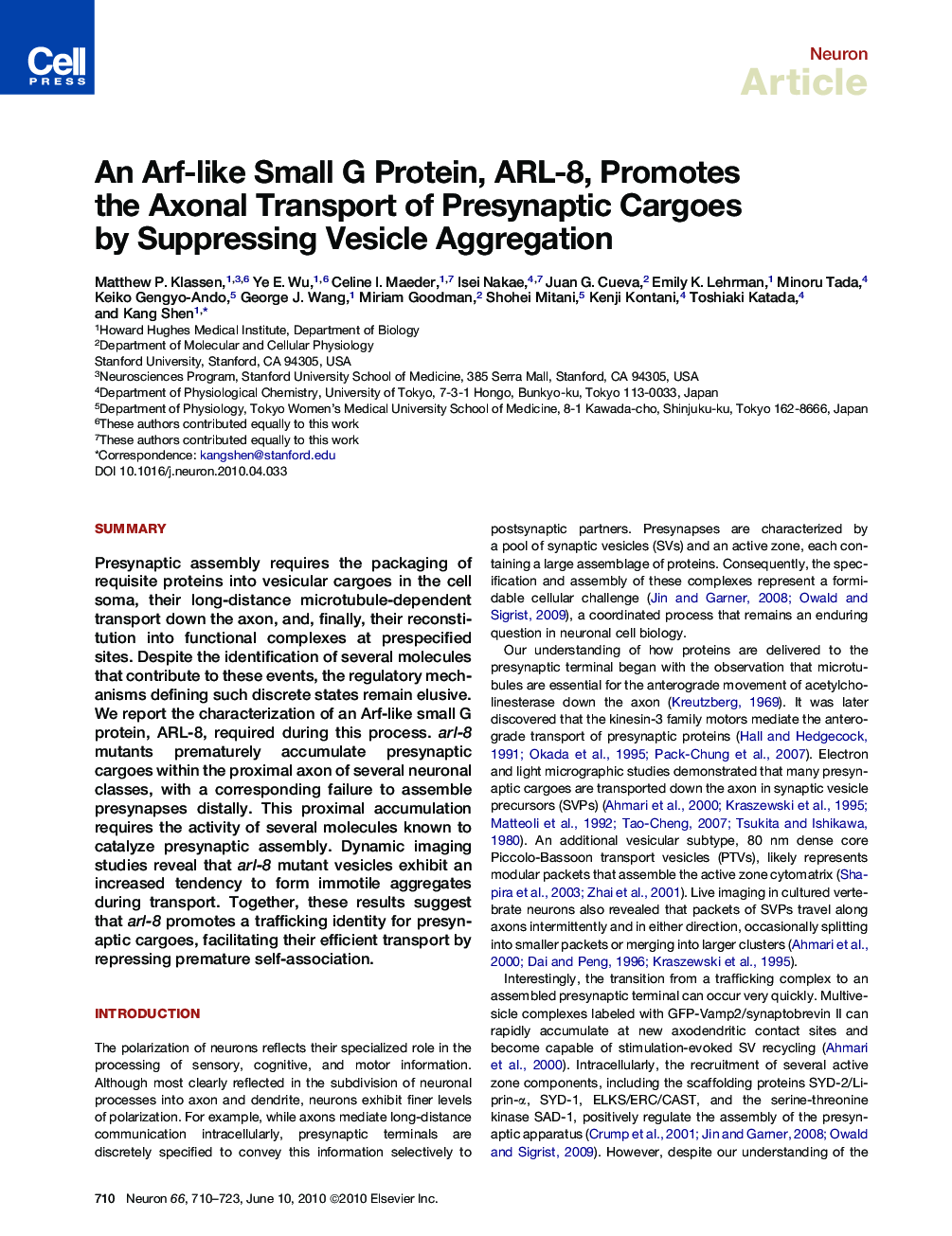| Article ID | Journal | Published Year | Pages | File Type |
|---|---|---|---|---|
| 4321940 | Neuron | 2010 | 14 Pages |
SummaryPresynaptic assembly requires the packaging of requisite proteins into vesicular cargoes in the cell soma, their long-distance microtubule-dependent transport down the axon, and, finally, their reconstitution into functional complexes at prespecified sites. Despite the identification of several molecules that contribute to these events, the regulatory mechanisms defining such discrete states remain elusive. We report the characterization of an Arf-like small G protein, ARL-8, required during this process. arl-8 mutants prematurely accumulate presynaptic cargoes within the proximal axon of several neuronal classes, with a corresponding failure to assemble presynapses distally. This proximal accumulation requires the activity of several molecules known to catalyze presynaptic assembly. Dynamic imaging studies reveal that arl-8 mutant vesicles exhibit an increased tendency to form immotile aggregates during transport. Together, these results suggest that arl-8 promotes a trafficking identity for presynaptic cargoes, facilitating their efficient transport by repressing premature self-association.
► arl-8 mutants ectopically accumulate presynaptic cargoes within the proximal axon ► Presynaptic cargoes form more immotile aggregates during transport in arl-8 mutants ► Presynaptic cargo aggregation requires the activity of presynaptic assembly molecules
